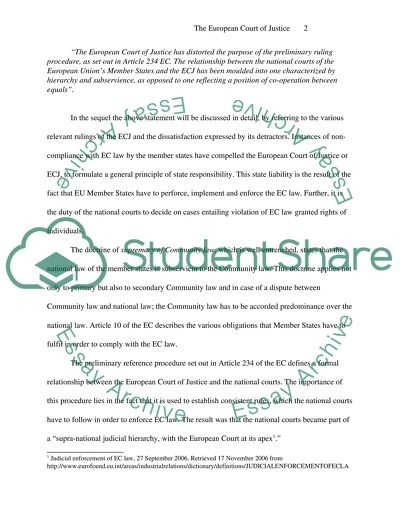Cite this document
(“The European Court of Justice has distorted the purpose of the Essay”, n.d.)
The European Court of Justice has distorted the purpose of the Essay. Retrieved from https://studentshare.org/miscellaneous/1538286-the-european-court-of-justice-has-distorted-the-purpose-of-the-preliminary-ruling-procedure-as-set-out-in-article-234-ec-the-relationship-between-the-nationa
The European Court of Justice has distorted the purpose of the Essay. Retrieved from https://studentshare.org/miscellaneous/1538286-the-european-court-of-justice-has-distorted-the-purpose-of-the-preliminary-ruling-procedure-as-set-out-in-article-234-ec-the-relationship-between-the-nationa
(The European Court of Justice Has Distorted the Purpose of the Essay)
The European Court of Justice Has Distorted the Purpose of the Essay. https://studentshare.org/miscellaneous/1538286-the-european-court-of-justice-has-distorted-the-purpose-of-the-preliminary-ruling-procedure-as-set-out-in-article-234-ec-the-relationship-between-the-nationa.
The European Court of Justice Has Distorted the Purpose of the Essay. https://studentshare.org/miscellaneous/1538286-the-european-court-of-justice-has-distorted-the-purpose-of-the-preliminary-ruling-procedure-as-set-out-in-article-234-ec-the-relationship-between-the-nationa.
“The European Court of Justice Has Distorted the Purpose of the Essay”, n.d. https://studentshare.org/miscellaneous/1538286-the-european-court-of-justice-has-distorted-the-purpose-of-the-preliminary-ruling-procedure-as-set-out-in-article-234-ec-the-relationship-between-the-nationa.


